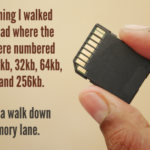The Ninth Circuit Court of Appeals today denied a request for an en banc hearing before a full panel of judges in the case of Marks v. Crunch San Diego, in which the defendant was found to have violated the Telephone Consumer Protection Act by using an automatic telephone dialing system to send text messages without obtaining the proper consent.
The ruling last month in the Marks case was viewed as a setback for the ARM industry, because the Appeals Court ruled that an ATDS is any device that “stores telephone numbers to be called, whether or not those numbers have been generated by a random or sequential number generator.” That definition contradicts what other courts have ruled.
The plaintiff received three text messages from the defendant, and subsequently filed suit, alleging the defendant violated the TCPA because the messages had been sent using an ATDS. The defendant won a summary judgment motion, arguing that the technology used to send the text messages did not meet the TCPA’s definition of an autodialer because the technology lacked a random or sequential number generator. The Ninth Circuit overturned that decision.
The last option for the defense is an appeal for a hearing before the Supreme Court, which given how other courts have ruled on this matter, could be approved.
Crunch San Diego had filed its request earlier this month for an en banc hearing because the ruling from the three-judge panel of the Ninth Circuit “effectively rewrites” the TCPA “in a manner that directly conflicts with the statutory text, legislative history, and binding intra- circuit and persuasive inter-circuit authority,” according to a copy of the brief. The court wrote in its ruling:
The full court has been advised of the Petition for Rehearing En Banc and no Judge has requested a vote on whether to rehear the matter en banc.
The decision in this case lead the Federal Communications Commission to re-open the comment period regarding a notice of proposed rulemaking related to updating the TCPA.









